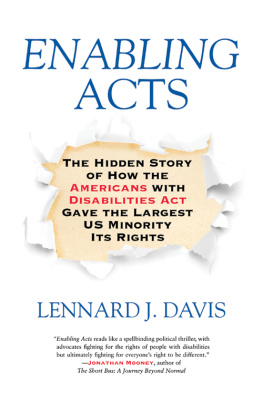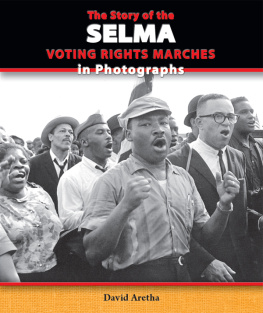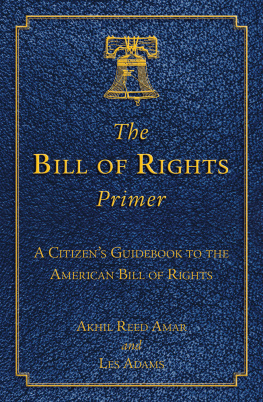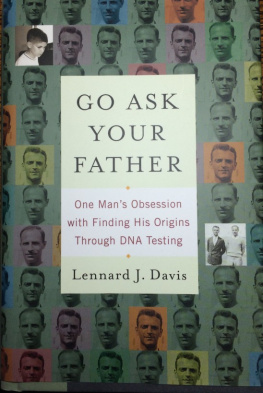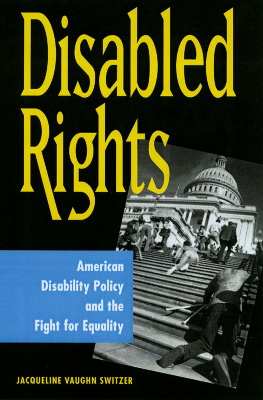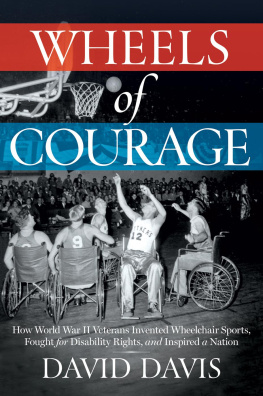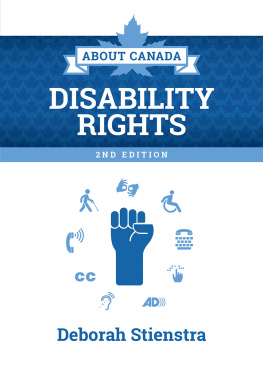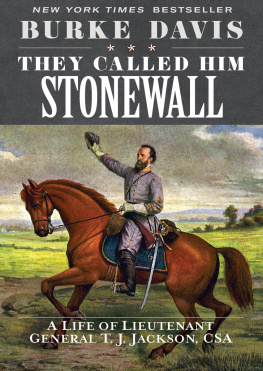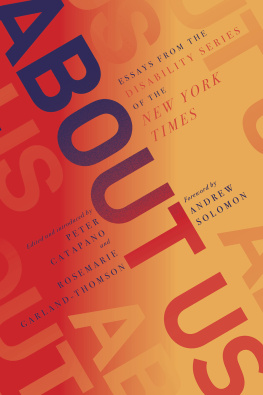Lennard J. Davis - Enabling Acts: The Hidden Story of How the Americans with Disabilities Act Gave the Largest U.S. Minority Its Rights
Here you can read online Lennard J. Davis - Enabling Acts: The Hidden Story of How the Americans with Disabilities Act Gave the Largest U.S. Minority Its Rights full text of the book (entire story) in english for free. Download pdf and epub, get meaning, cover and reviews about this ebook. year: 2015, publisher: Beacon Press, genre: Politics. Description of the work, (preface) as well as reviews are available. Best literature library LitArk.com created for fans of good reading and offers a wide selection of genres:
Romance novel
Science fiction
Adventure
Detective
Science
History
Home and family
Prose
Art
Politics
Computer
Non-fiction
Religion
Business
Children
Humor
Choose a favorite category and find really read worthwhile books. Enjoy immersion in the world of imagination, feel the emotions of the characters or learn something new for yourself, make an fascinating discovery.
- Book:Enabling Acts: The Hidden Story of How the Americans with Disabilities Act Gave the Largest U.S. Minority Its Rights
- Author:
- Publisher:Beacon Press
- Genre:
- Year:2015
- Rating:5 / 5
- Favourites:Add to favourites
- Your mark:
Enabling Acts: The Hidden Story of How the Americans with Disabilities Act Gave the Largest U.S. Minority Its Rights: summary, description and annotation
We offer to read an annotation, description, summary or preface (depends on what the author of the book "Enabling Acts: The Hidden Story of How the Americans with Disabilities Act Gave the Largest U.S. Minority Its Rights" wrote himself). If you haven't found the necessary information about the book — write in the comments, we will try to find it.
The Americans with Disabilities Act (ADA) is the widest-ranging and most comprehensive piece of civil rights legislation ever passed in the United States, and it has become the model for disability-based laws around the world. Yet the surprising story behind how the bill came to be is little known.
In this riveting account, acclaimed disability scholar Lennard J. Davis delivers the first on-the-ground narrative of how a band of leftist Berkeley hippies managed to make an alliance with upper-crust, conservative Republicans to bring about a truly bipartisan bill. Based on extensive interviews with all the major players involved including legislators and activists, Davis recreates the dramatic tension of a story that is anything but a dry account of bills and speeches. Rather, its filled with one indefatigable character after another, culminating in explosive moments when the hidden army of the disability community stages scenes like the iconic Capitol Crawl or an event when students stormed Gallaudet University demanding a Deaf President Now!
From inside the offices of newly formed disability groups to secret breakfast meetings surreptitiously held outside the White House grounds, here we meet countless unsung characters, including political heavyweights and disability advocates on the front lines. You want to fight? an angered Ted Kennedy would shout in an upstairs room at the Capitol while negotiating the final details of the ADA. Congressman Tony Coelho, whose parents once thought him to be possessed by the devil because of his epilepsy, later became the bills primary sponsor. Theres Justin Dart, adorned in disability power buttons and his signature cowboy hat, who took to the road canvassing 50 states, and people like Patrisha Wright, also known as The General, Arlene Myerson or the brains, architect Bob Funk, and visionary Mary Lou Breslin, who left the hippie highlands of the West to pursue equal rights in the marble halls of DC.
Lennard J. Davis: author's other books
Who wrote Enabling Acts: The Hidden Story of How the Americans with Disabilities Act Gave the Largest U.S. Minority Its Rights? Find out the surname, the name of the author of the book and a list of all author's works by series.

